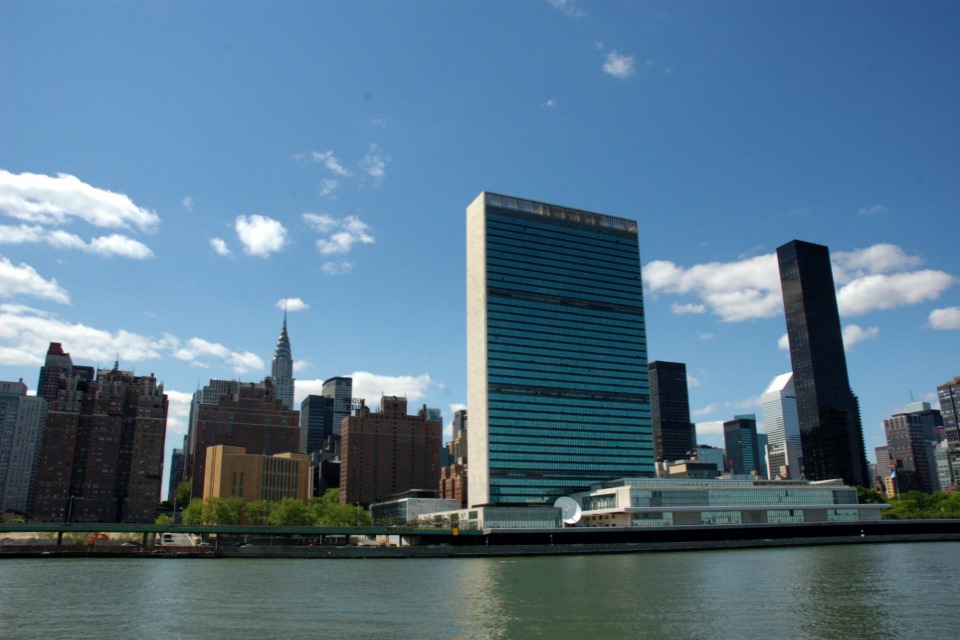“Sierra Leone has undergone a remarkable transformation”
Statement by Ambassador Lyall Grant of the UK Mission to the UN, to the Security Council Open Session on Sierra Leone

I’d like to welcome Foreign Minister Kamara to the Security Council this morning. I also thank Executive Representative Jens Toyberg-Frandzen and Ambassador Guillermo Rischynski for their briefings. And I pay particular tribute to Mr Toyberg-Frandzen for his personal contribution over the last two and a half years to UNIPSIL’s work.
The United Kingdom welcomes the Presidential Statement to be adopted later this morning on the completion of UNIPSIL’s mandate. Today marks a watershed in the history of Sierra Leone and is a moment of celebration for the people of Sierra Leone, the United Nations, and the Security Council.
Today I will reflect on three points: Sierra Leone’s success; the work ahead to consolidate peace; and the key lessons we can learn from Sierra Leone as we address conflicts elsewhere in Africa and around the world.
First, Madam President, Sierra Leone’s success.
Since Sierra Leone came onto the Security Council’s agenda 15 years ago, it has undergone a remarkable transformation from civil war to landmark presidential elections in November 2012. Today is another milestone in Sierra Leone’s journey from fragile state to a country which now supports conflict resolution efforts around Africa. In 2002 Sierra Leone hosted the world’s largest peacekeeping mission in the aftermath of a brutal war. In 2014 Sierra Leone contributes its own troops to other peacekeeping missions in Africa, helping to provide stability in countries such as Somalia and Mali.
The United Nations played a central role in helping Sierra Leone to recover from its devastating civil war. Effective, tailored and well-planned UN peacebuilding interventions can improve people’s lives. The United Kingdom welcomes the closure of the UN Peacebuilding Mission in Sierra Leone. And I commend Executive Representative of the Secretary-General Jens Toyberg-Frandzen and all other UNIPSIL staff for their dedicated work in Sierra Leone and welcome David McLachlan Karr as the new UN Resident Coordinator.
Second, Madam President, is the work ahead in Sierra Leone.
While today we celebrate the departure of UNIPSIL, we must remember the long road ahead for Sierra Leone as it seeks to become a middle income country. As the Secretary-General recognised during his visit earlier this month, there is still much to be done if we are to consolidate the gains of the last decade. President Koroma’s ambitious five year development plan, the Agenda for Prosperity, sets out the development and social tasks ahead. Tackling corruption will be essential for attracting investment and ensuring that economic growth benefits all citizens.
The recently agreed Mutual Accountability Framework will underpin the Agenda for Prosperity by bringing together the Government of Sierra Leone and donor partners. The United Nations, the United Kingdom and other members of the international community will continue to work with the Government of Sierra Leone. In this regard, we are delighted that Sierra Leone will be one of seven new markets to receive United Kingdom Trade and Industry resources.
Finally, Madam President, I would like to touch on the lessons we can learn from Sierra Leone.
Sierra Leone’s experience teaches us that it is possible to build peace in the aftermath of brutal conflict, and that the United Nations can play a central role in that process. Strong national ownership of peacebuilding processes and a focus on building national institutions are essential to securing a sustainable peace.
Political will is required at both the national and international levels. Political engagement from the international community, such as through the Security Council, is needed to provide a check and balance to national decisions. The different instruments of the UN must work in a complementary fashion, such as between the Security Council and the Peacebuilding Commission.
If we are to replicate the success of Sierra Leone, we must take these lessons and apply them to our discussions elsewhere in Africa and beyond—drawing on the experiences and reflections of our colleagues and friends from Sierra Leone.
In closing, Madam President, I would like to extend the United Kingdom’s best wishes to the Government and people of Sierra Leone and new United Nations Country Team for their work in the years to come. The United Kingdom will continue to be one of the country’s closest friends and we look forward to many years of fruitful partnership ahead.
Thank you.